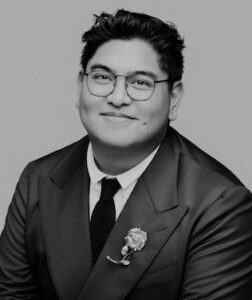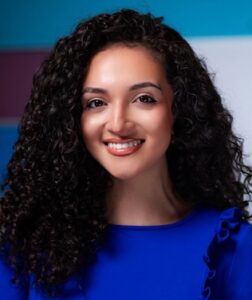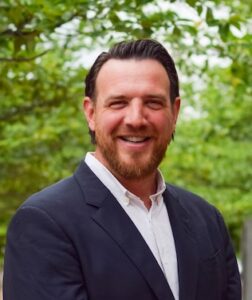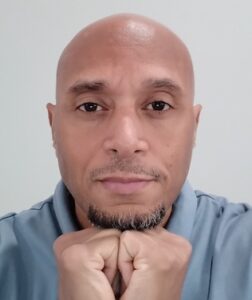Change Stories 2026 Fellowship: A global exchange shaping more equitable and sustainable cities — and the stories we tell about them.
About the Fellowship
The Change Stories Fellowship is a learning and knowledge exchange program for leaders and changemakers in urban equity and sustainability. Fellows will connect with peers and activist-academic partners in a week-long international residency in Belo Horizonte, Brazil. Each of the partner cities on the Change Stories project will send Fellows to Belo Horizonte, alongside a cohort from the U.S.
U.S.-based follows are participating in a 9-month long program following a competitive selection process. The Fellowship is part of the knowledge dissemination and impact strategy for Change Stories and U.S.-based Fellows will implement a post-residency storytelling project that highlights insights and learning in their own networks and communities.
U.S.-based Fellows
The U.S.-based Fellows work in state and local agencies, community-based organizations, and as independent advocates — including organizers, urban planners, and public health leaders — who are committed to equitable and sustainable urban policy, power building, increasing community agency in decision-making, and/or participatory planning.

Forest Abbott-Lum, Senior Environmental Planner, Bay Area Air District. Forest is a Senior Environmental Planner at the Bay Area Air District, where she works on long-term climate and air quality planning for the San Francisco Bay Area, with a focus on frontline communities. Her professional experience advancing climate action spans work in New York City, Beijing, and the Bay Area, collaborating with environmental lawyers, civil society organizations, faith groups, activists, and community leaders. These experiences keep her grounded, shaping her belief that the most important work comes from listening to communities and learning through doing.
Forest holds a bachelor’s degree in Environmental Studies and Mandarin Chinese from Bennington College and a Master of Environmental Management from Yale University. Outside of work, she enjoys exploring California’s coast by bike and surfboard, and continues her quest to find San Francisco’s best soup dumpling.

Kevin Borja, Senior Planner, City of San Diego. Kevin is an urban planner and designer based in San Diego, California, with a focus on inclusive planning and civic engagement. He holds a bachelor’s degree in Urban Design from New York University and a master’s degree in Urban Planning from Columbia University. His research interests span the physical and social dimensions of urban systems, including public and green spaces, nighttime governance, civic participation, and urban analytics.
A public servant at heart, Kevin has worked with a range of public sector organizations, including the New York City Department of Parks and Recreation, the New York City Mayor’s Office, and the City of San Diego’s Planning Department, where he supports inclusive public engagement for citywide and community-based projects. He also brings experience from the private sector through his work with AECOM on affordable housing and urban design projects across California. Kevin is committed to addressing historical marginalization and empowering communities to shape their futures through storytelling and planning.

Jennifer Borrero, Georgia Organizing Director, YIMBY Action. Jennifer is a non-profit founder and global speaker transforming how we think about housing, justice, and community. Known for her bold storytelling, Jennifer offers keynotes and programs that ignite action, challenge assumptions, and expand what’s possible. She specializes in housing advocacy and sustainable housing projects.
Recognized with the Hispanic Executive 30 Under 30 Award and the U.S. Global Leadership Coalition NextGen Leader Award, Jennifer has delivered TEDx talks on the future of housing. She holds a Master’s degree from Georgia State University and serves as a Global Ambassador for the United Nations Association.

Vedette R. Gavin, Principal, Verge Impact Partners. Vedette is a community-engaged public health consultant, researcher, and Principal of Verge Impact Partners, with more than 20 years of experience advancing health equity through research, public engagement, and systems-change strategy. Her work sits at the intersection of public health, the built environment, and community leadership, with a focus on cultivating community-led research and decision-making to support thriving communities of color.
Vedette is the Founder and Co–Principal Investigator of the Healthy Neighborhoods Study at MIT, the largest participatory action research study on neighborhood change and health in the United States. She previously led developmental learning and evaluation efforts with Success Measures, partnering with philanthropic, national, and grassroots organizations. Vedette currently serves as Vice Chair of the Black Women’s Health Imperative and is a founding board member of the Center for Achieving Equity. She holds a BS from the University of Maryland, an MPH from The Ohio State University, and an MPA from Harvard Kennedy School.

Eric Hoke, Design Director, Civic Design Center. Eric is Design Director at the Civic Design Center in Nashville, where he leads design strategy, visual communications, and advocacy efforts focused on sustainability, transportation, and equitable urban development. He holds a bachelor’s degree in Interior Architecture from Ohio University, where his thesis explored adaptive reuse and regional connectivity through a high-speed rail hub in Chicago. His professional background spans residential architecture, medical and furniture design, and graphic design.
Since joining the Civic Design Center in 2012, Eric has contributed to numerous citywide initiatives, including Nashville’s transit improvement planning, Vision Zero efforts, and ecological conservation strategies. He has served in leadership roles with Transit Now Nashville, WeGo Public Transit advisory committees, and regional mobility coalitions. Eric is recognized for his leadership in active transportation and received Walk Bike Nashville’s Advocate of the Year award in 2025. His work reflects a commitment to design as a tool for civic engagement and systemic change.

Kelly Naranjo, Director, Research and Evaluation, God’s Love We Deliver. Kelly is a multidisciplinary scholar with expertise in bioethics and biology and currently serves as Director of Research and Evaluation at God’s Love We Deliver, a New York City–based food and nutrition nonprofit. Using a health equity lens and community-engaged, participatory research approaches, she works to strengthen research diversity, center client voice, and improve organizational services through direct community feedback. Her work explores ethical frameworks for engaging communities in nutrition research and interventions, with a focus on building replicable, community-informed models that can influence local policy.
As a leader within an unconventional research organization, Kelly emphasizes the role nonprofits play in building trust and advancing the Food Is Medicine movement. She has established academic partnerships across New York and New Jersey to pool resources and advance health outcomes through sustainable food and nutrition initiatives. She is eager to collaborate on inclusive storytelling strategies that elevate community knowledge and advance health equity and food justice.

Khalil Shahyd, Senior Strategist, Environmental and Equity Strategies at Natural Resources Defense Council (NRDC). Khalil is Senior Strategist of Environmental and Equity Strategies at the Natural Resources Defense Council, where he works at the intersection of environmental protection, climate solutions, and economic justice. His research and advocacy focus on the political, environmental, and equity implications of emerging technologies, with particular attention to artificial intelligence and data center infrastructure. Drawing on a political ecology framework, Khalil examines how AI development shapes resource distribution, governance, environmental justice, and community wellbeing, including impacts related to energy use, extraction, and waste.
Khalil brings more than 20 years of experience in social justice advocacy in urban and rural contexts across the United States and internationally, including work in Mexico, India, and Brazil. He holds a BA in History from Tulane University, an MA in Sustainable International Development from Brandeis University, and a PhD in Energy and Environmental Policy from the University of Delaware. Outside of work, he enjoys astronomy and soccer.